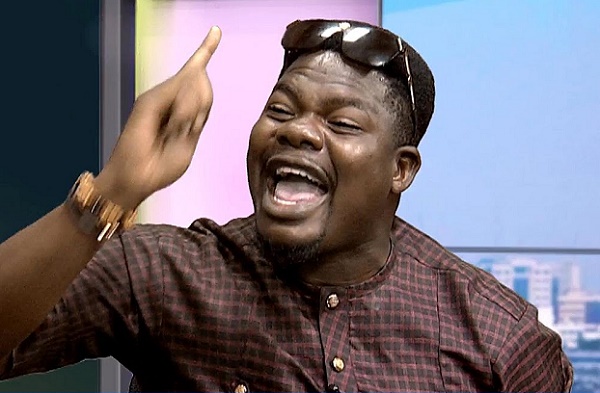Popular Nigerian content creator and activist Debo Adedayo, widely known as Mr Macaroni, has reignited political debate with a scathing critique of the All Progressives Congress (APC), Nigeria’s ruling party.
His remarks come in response to President Bola Ahmed Tinubu’s controversial decision to grant presidential pardon to 175 convicted criminals, including drug traffickers, human traffickers, illegal miners, and murderers.
The announcement, made last week, has sparked widespread outrage across Nigeria, particularly on social media, where citizens and civil society groups have condemned the move as a betrayal of justice and a dangerous precedent.
Reacting to the development, Mr Macaroni reposted a comment from user @DOlusegun on X (formerly Twitter), which read:
“In saner climes, civil society organizations should be on the streets protesting pardon of the criminal alams by now.”
Adding his own voice, Macaroni wrote:
“Every evil that the APC once condemned, they now practice and support. APC is a party filled with most corrupt people surrounded by worst sycophants. A marriage of doom and misfortune!”
His post quickly went viral, drawing thousands of reactions from Nigerians who echoed his sentiments and expressed frustration over what many see as a deepening crisis of accountability in governance.
The presidential pardon has raised serious questions about the integrity of Nigeria’s justice system. Legal experts argue that while the constitution grants the president the power to pardon, the inclusion of high-profile criminals – many of whom were convicted for crimes that have devastated communities – undermines public trust in law enforcement and the judiciary.
READ: Mandy Kiss Alleges Plot to Commit Her to Psychiatric Hospital
Human rights organizations have also criticized the timing and scope of the clemency, warning that it could embolden criminal networks and discourage whistleblowers and victims from seeking justice.
The presidential prerogative of mercy was presented by Attorney-General of the Federation and Minister of Justice, Lateef Fagbemi, SAN, based on recommendations from the Advisory Committee on the Prerogative of Mercy.
While the inclusion of Macaulay was framed as a gesture of historical reconciliation, the bulk of the pardons involved individuals convicted of serious crimes – many of whom had served less than two years of their sentences.
According to reports, the justification for clemency included claims that the convicts had shown remorse and acquired vocational skills while in prison. However, critics argue that such reasoning fails to address the gravity of their offenses and undermines the rule of law.
ADC Labels the Pardon a “National Disgrace”
The African Democratic Congress (ADC) issued a strongly worded statement through its National Publicity Secretary, Bolaji Abdullahi, describing the pardons as “pathetic” and “an act of immense national disgrace.”
“The recent presidential pardon and clemency granted to several convicted criminals by President Bola Ahmed Tinubu undermines Nigeria’s anti-drug campaign and damages the country’s international image,” the statement read.
The ADC warned that the decision could demoralize agencies like the National Drug Law Enforcement Agency (NDLEA), whose personnel risk their lives to combat drug-related crimes.
The party also highlighted Nigeria’s troubling drug use statistics – 14.4% prevalence, nearly three times the global average – and argued that the pardons could have serious implications for public health and national security.
Historical Symbolism or Political Diversion?
The inclusion of Herbert Macaulay in the pardon list added a layer of complexity to the debate. Macaulay, often called the “father of Nigerian nationalism,” was convicted in 1913 for allegedly misappropriating funds from an estate he administered. Historians have long debated the fairness of his prosecution, viewing it as a colonial tactic to suppress dissent.
READ: Chaos in Abuja Hotel as BBNaija’s Phyna Engages in Heated 200k Dispute
According to a 2024 report by the International Centre for Investigative Reporting (ICIR), presidential pardons in Nigeria have historically sparked public concern, especially when linked to corruption and drug-related offenses.
Political analyst Dr. Hassan Iliyasu told GossipXpress that “such clemencies, when perceived as politically motivated, further alienate citizens from governance.”
While some Nigerians agree with Mr Macaroni’s outburst, others believe his comments reflect the growing frustration among young voters who feel disconnected from national decisions. The incident reignites conversations around political accountability and civic engagement in Nigeria’s Fourth Republic.
Across social media and public forums, Nigerians have expressed a mix of anger, confusion, and disappointment. Many see the pardons as a betrayal of the government’s stated commitment to justice and anti-corruption. Others worry that the move sets a dangerous precedent, where political connections and public sympathy can override legal consequences.
Political analysts suggest that the backlash could erode public trust in the Tinubu administration and fuel opposition momentum ahead of the 2027 elections. The lack of transparency around the selection criteria for clemency has only intensified calls for reform.
Disclaimer: This article is based on verified reports and public statements. GossipXpress does not make unverified claims or endorse any political position.



